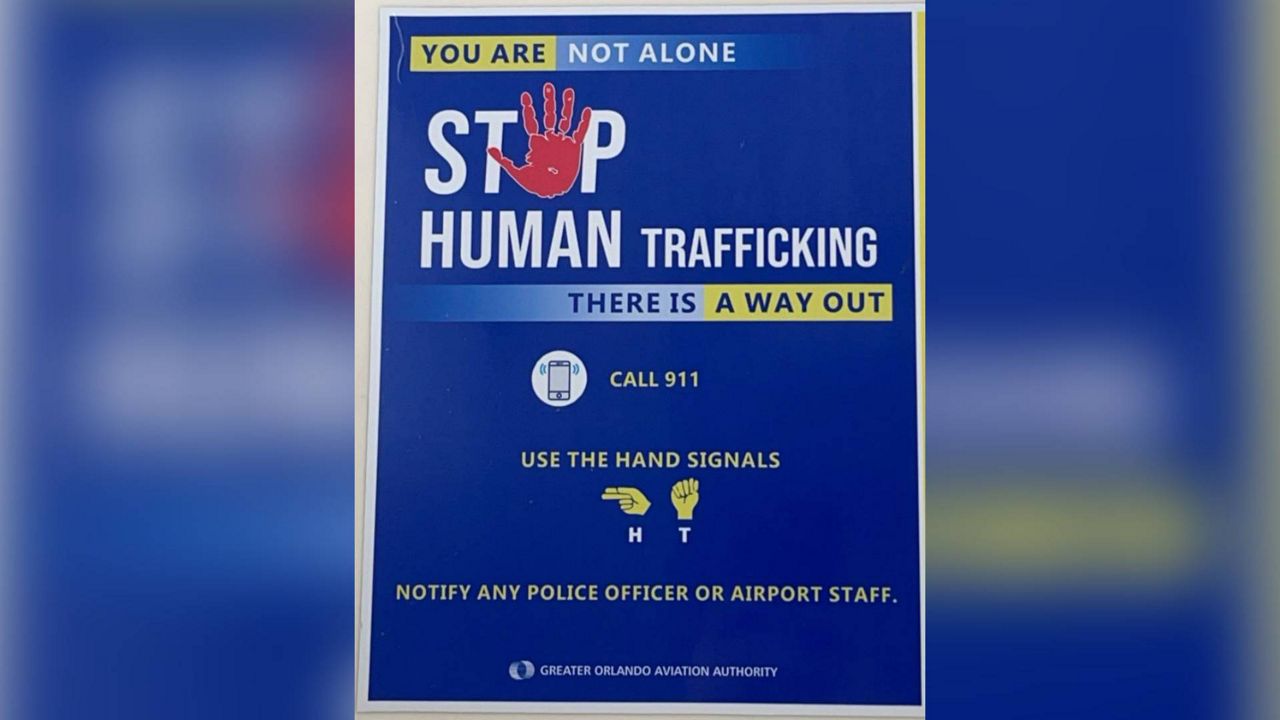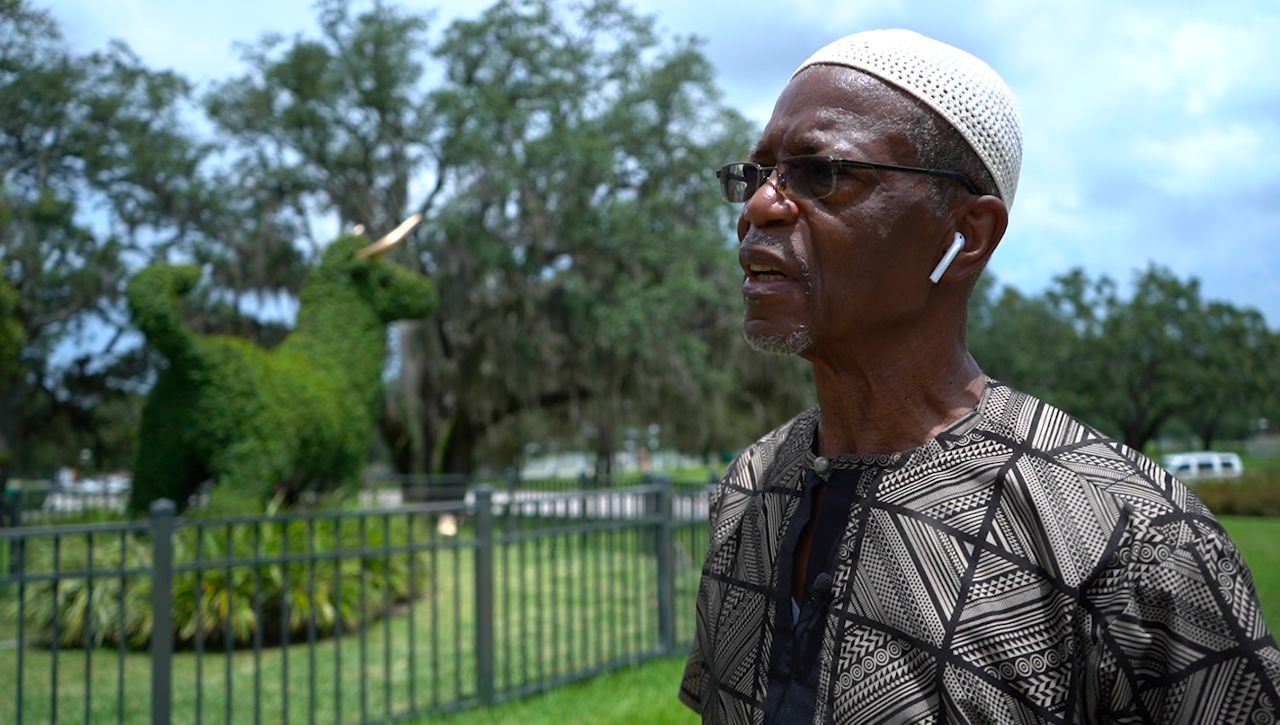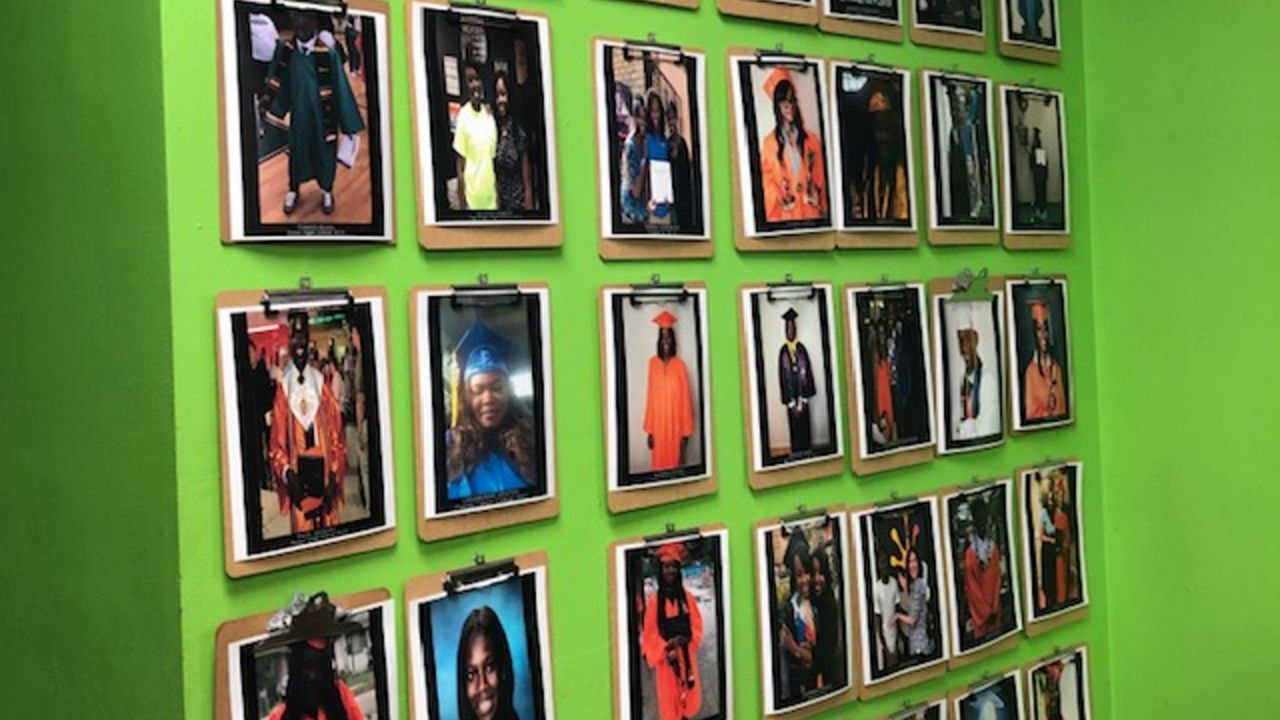ORLANDO, Fla. — Human trafficking awareness training is taking place in the private sector to address this worldwide widespread crime. Law enforcement and many private businesses are making sure they’re on the lookout for the signs of human trafficking, too, in order to help victims and bring the perpetrators to justice.
What You Need To Know
- Call 9-1-1 if you are in immediate danger
- National Human Trafficking Hotline: 888 373 7888 (or text HELP or INFO to BeFree (233733)
- National Center for Missing & Exploited Children 1-800-THE-LOST
Florida requires hotel and lodging businesses to give their employees approved training. This includes housekeepers, front desk clerks, those at the concierge desk, valets and others.
In Texas and Ohio, hairstylists and cosmetologists are being trained, too. They're required to take courses on spotting human trafficking in their clients. The Truckers Against Trafficking organization is also working to put the brakes on trafficking. Training programs like the one at the Roadmaster Drivers School teach truckers about the red flags they could encounter on the road and at truck stops and what to do about them.
“If truckers are sitting in their truck and they see a Lincoln Navigator pull in and then girls get out, there’s no reason why 10 girls are getting out of a Navigator at a truck stop scantily clad — wearing clothing that is revealing. That’s an indicator that they should call the 1-800 number,” said Roadmaster Drivers School President Brad Ball.
It’s a trend the transportation industry as a whole is following.
At a recent event at Port Tampa Bay, organizers were focused on raising awareness about precious cargo that shouldn’t be there.
“It’s extremely important for all sectors in the maritime industry to be aware of human trafficking,” said Brianna Cho of Businesses Ending Slavery and Trafficking (BEST). “It can be occurring in the cruise industry but also fishing, cargo or shipping. Really in any setting. There are four main indicators of human trafficking. It’s control, distress or injury, confusion and behaviors that indicate sex buying.”
You don’t need formal training to spot the signs of human trafficking.
You may hear announcements over the loudspeaker in airports. You may see signs posted there, in bus stations, restaurants, bars and even restrooms. At Orlando International Airport, like many other airports, employees receive special training on identifying trafficking and taking action.
Here's how to spot the signs of human trafficking according to the U.S. Department of Homeland Security:
- Does the person appear disconnected from family, friends, community organizations, or houses of worship?
- Has a child stopped attending school?
- Has the person had a sudden or dramatic change in behavior?
- Is a juvenile engaged in commercial sex acts?
- Is the person disoriented or confused, or showing signs of mental or physical abuse?
- Does the person have bruises in various stages of healing?
- Is the person fearful, timid, or submissive?
- Does the person show signs of having been denied food, water, sleep, or medical care?
- Is the person often in the company of someone to whom he or she defers? Or someone who seems to be in control of the situation, e.g., where they go or who they talk to?
- Does the person appear to be coached on what to say?
- Is the person living in unsuitable conditions?
- Does the person lack personal possessions and appear not to have a stable living situation?
- Does the person have freedom of movement? Can the person freely leave where they live? Are there unreasonable security measures?
If you, someone you know, or someone you see appears to be in a human trafficking situation, call the National Human Trafficking Hotline, which is available 24 hours a day, 7 days a week.
- National Human Trafficking Hotline: 888-373-7888 (or text HELP or INFO to BeFree (233733)
The National Center for Missing & Exploited Children is the place to report missing children or child pornography.
- National Center for Missing & Exploited Children: 1-800-THE-LOST
Human trafficking is a worldwide widespread crime. The U.S. State Department estimates there are more than 27 million victims at any given time. Traffickers exploit and profit at the expense of adults and children by compelling them to perform labor or engage in commercial sex.
The National Human Trafficking Hotline says many times sex crimes are taking place in hotels, spas and illicit businesses. When it comes to labor trafficking, it’s being seen in agriculture, on farms and in domestic work or hospitality.






